Nicki Minaj’s appearance at the United Nations this week marked one of the most unexpected and globally resonant moments of her career. Instead of promoting music or a new project, she delivered a moral appeal on behalf of Christians in Nigeria facing escalating violence. Speaking at a U.S. Mission to the U.N. event in New York, Minaj described reports of churches destroyed, families displaced, and believers killed by extremist groups. She emphasized that her presence was “not about politics, but about humanity,” and publicly thanked former President Donald Trump for raising awareness on the issue.
The Reality of Christian Persecution in Nigeria
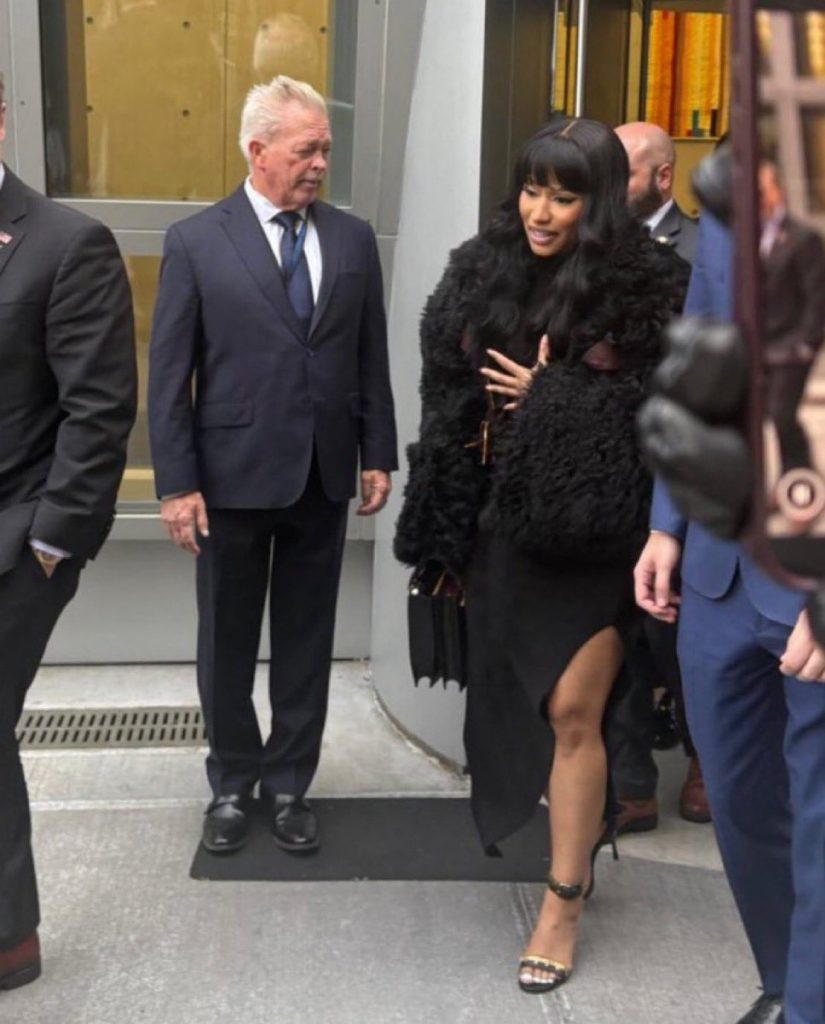
Minaj’s concerns echo alarming data from humanitarian and religious freedom organizations. According to Open Doors and U.S. lawmakers, Nigeria remains the deadliest country in the world for Christian persecution, with more believers killed there than in any other region. The threat is not abstract: just days before Minaj’s speech, armed men abducted 25 schoolgirls in Kebbi State and killed staff members attempting to protect them. In another incident, attackers opened fire on worshippers in central Nigeria. These attacks, combined with years of terrorism from Boko Haram and ISIS-West Africa, have forced entire Christian communities to flee or live under constant fear.
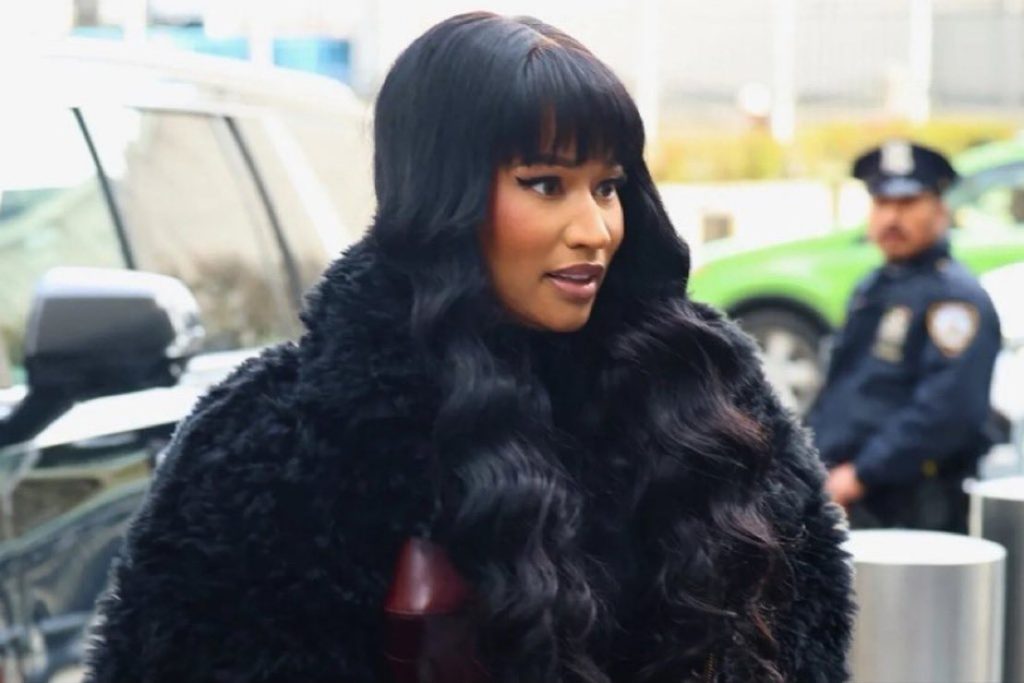
A Crisis More Complex Than One Narrative
While Christian persecution is real and documented, analysts and Nigerian citizens consistently warn that the country’s violence cannot be reduced to a simple religious conflict. Many Muslim communities also endure brutal attacks, and much of the instability stems from overlapping issues: terrorism, land disputes, criminal gangs, government failures and poverty. Critics argue that focusing solely on one religious group—regardless of their suffering—risks erasing the wider humanitarian collapse affecting millions across different backgrounds.
The Political Weight Behind Nicki’s Advocacy
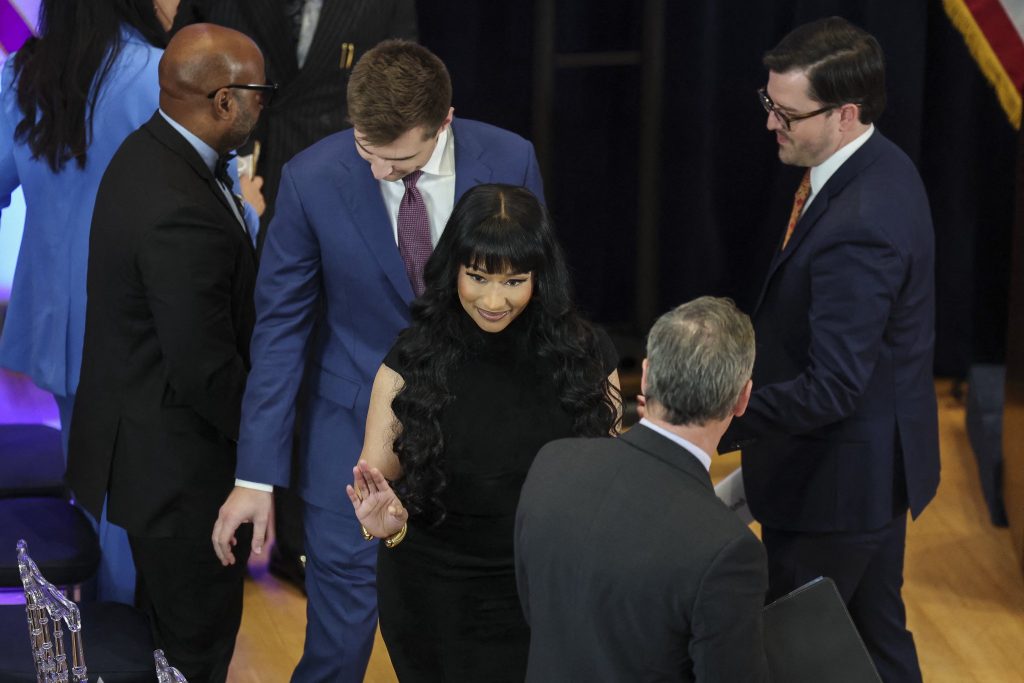
Nicki Minaj’s involvement immediately collided with American political forces. U.N. Ambassador Michael Waltz praised her as someone who “refuses to remain silent,” and Trump’s allies framed her advocacy as validation that Nigerian Christians face an “existential threat.” However, human-rights observers and foreign policy experts caution that U.S. political narratives often exaggerate or reshape international crises to fit domestic agendas. For some critics, the concern is not Minaj’s compassion—it’s the political machinery surrounding her.
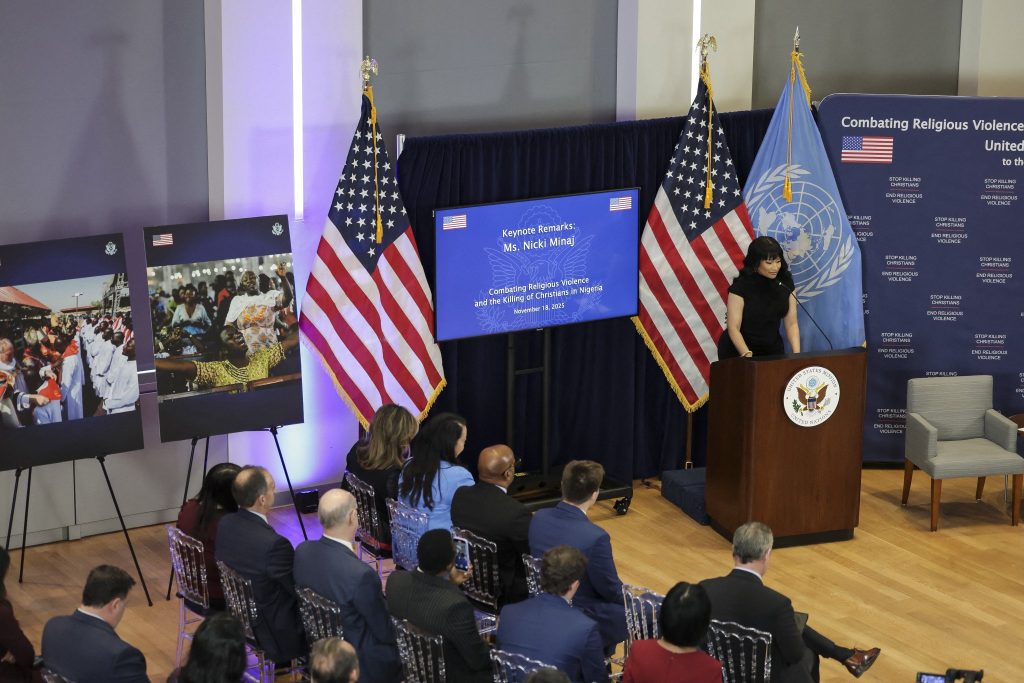
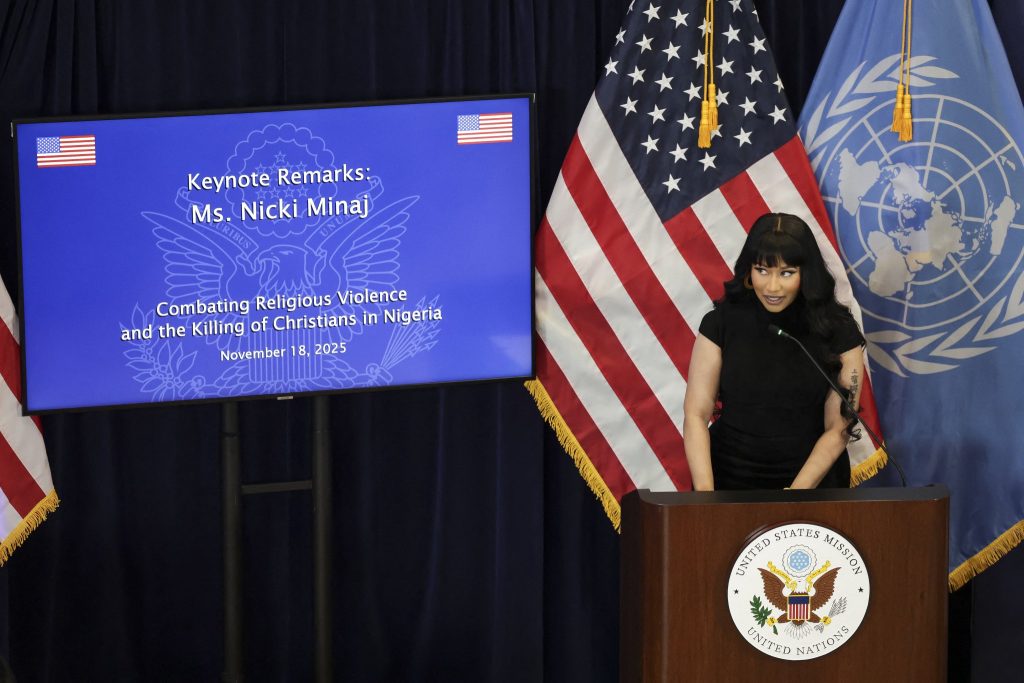
Amanda Seales’ Warning: Misuse of Celebrity Influence
Amanda Seales was one of the first to express strong reservations. She emphasized that her critique was not about dismissing the suffering of Nigerians, but about questioning the environment Minaj stepped into. Seales argued that celebrity activism becomes dangerous when it lacks full geopolitical context. In her reasoning, American leaders—especially those aligned with Trump—have a long history of invoking humanitarian crises only when they align with strategic interests. She warned that Minaj might be unintentionally reinforcing a narrative crafted by politicians who often use emotional stories about Africa to justify access to its resources, military positioning, or political leverage. Seales stressed that genuine compassion must be paired with deep understanding, otherwise well-intentioned celebrity platforms can be manipulated.
Tammy Rivera’s Concerns About U.S. Interests in Africa
Tammy Rivera reinforced this argument when she commented that the U.S. “rarely intervenes without strategic or financial benefit.” In her view, framing the situation solely as “protecting Christians” can be a convenient pretext for deeper involvement in regions rich in minerals, energy, and other resources. Rivera’s point was that the issue is not Minaj speaking up, but whether powerful figures will use her message to justify unwanted political or economic interference in Nigeria.
Tamika Mallory’s Warning About Exploitation
Activist Tamika D. Mallory offered an even more pointed critique. She argued that as Trump “turns his attention to Nigeria,” exploitation is almost guaranteed. Mallory warned that someone in his circle could be seeking access to Nigeria’s resources or political influence, and that humanitarian language often masks long-term strategic objectives. She also cautioned that if any form of U.S. intervention leads to instability or harm, Minaj could become symbolically associated with the consequences—a burden she may not be prepared for.
A Conversation Holding Two Truths
This moment carries weight because it forces two truths to exist at once. Christians in parts of Nigeria are undeniably targeted, displaced and killed at alarming rates. Their suffering is real, and Minaj’s decision to spotlight them has drawn long-overdue global attention. But Nigeria’s broader crisis affects Muslims, Christians and non-religious civilians alike, and historical patterns show that foreign powers often weaponize humanitarian concern for strategic gain.
The Path Forward
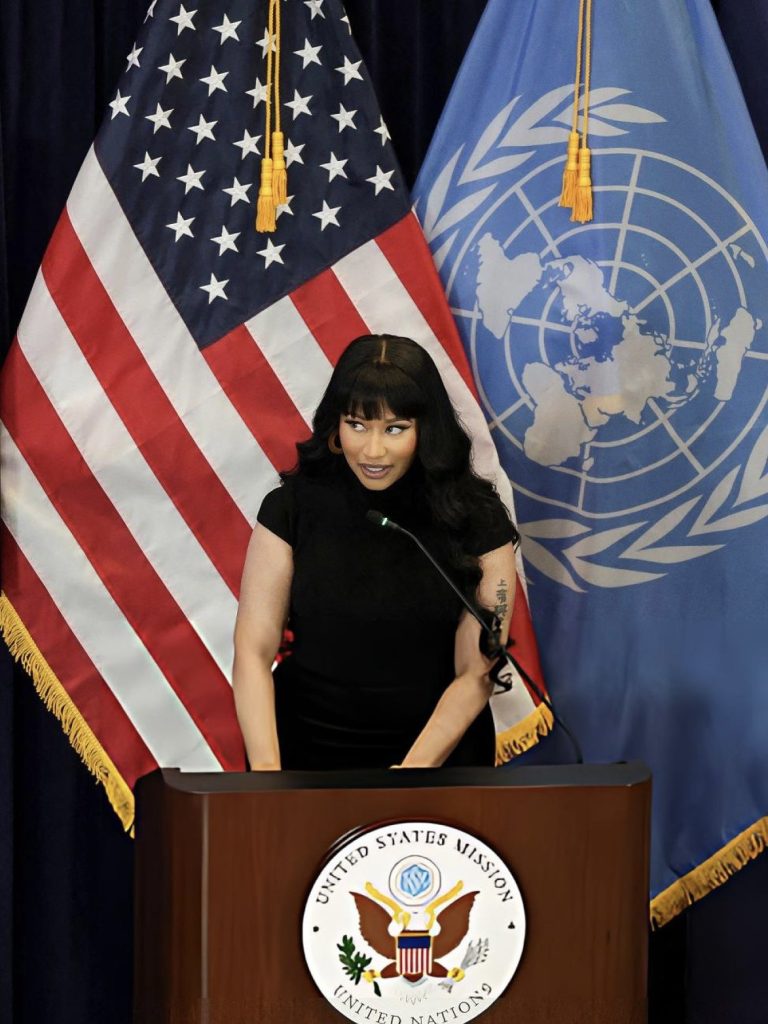
Nicki Minaj’s speech sparked global discussion and renewed focus on the crisis in Nigeria. Her message brought compassion, visibility and urgency to a tragedy many in the diaspora have long begged the world to acknowledge. The critiques from Amanda Seales, Tammy Rivera and Tamika Mallory remind audiences that advocacy must be grounded in nuance, history and the voices of Nigerians themselves. As attention grows, the challenge becomes ensuring that awareness leads to ethical protection of vulnerable communities—not another chapter of foreign exploitation disguised as help.

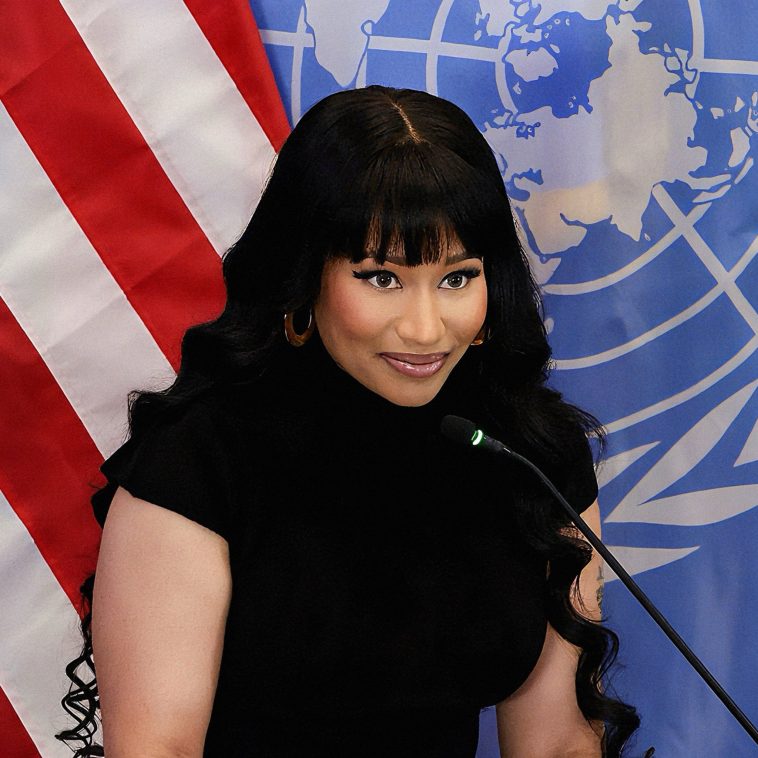
GIPHY App Key not set. Please check settings